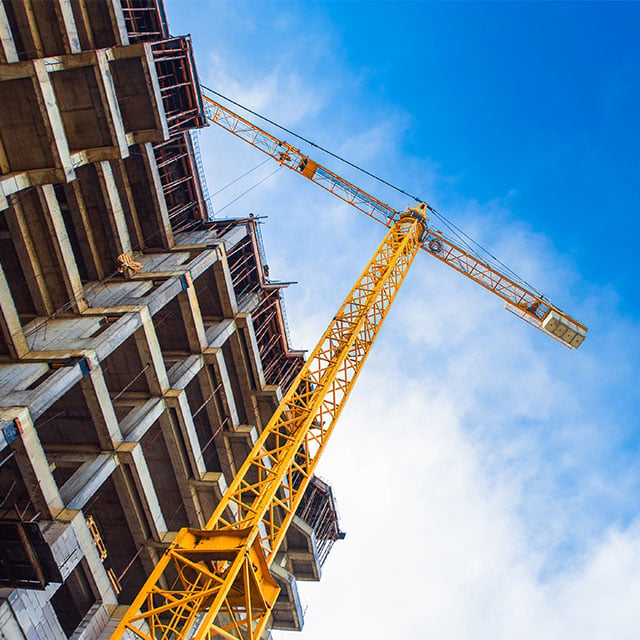In an attempt to reduce delayed payment periods in Alberta, on August 29, 2022, the Prompt Payment and Construction Lien Act (the PPCLA) came into force replacing the Builder's Lien Act (the BLA). Although most of the BLA was incorporated into the PPCLA, there are a number of significant changes including, most significantly (1) a mandatory prompt payment requirement for "proper invoices", and (2) a fast-track adjudication (dispute resolution) procedure.
In this update, we provide a brief response to some of the most common questions being asked by organizations in the construction and oil and gas industries as they attempt to adapt to the PPCLA.
- Does the PPCLA Apply to Pre-Existing Contracts?
The PPCLA only applies to applicable contracts and subcontracts effective August 29, 2022, or later. Contracts entered into before then that will be in existence for longer than two years after August 29, 2022, will have until August 29, 2024, to become compliant.
For those organizations with master services agreements entered into before August 29, 2022, and purchase orders issued after August 29, 2022, we recommend proceeding on the assumption that each purchase order will be subject to the PPCLA. - What Types of Contracts Are Subject to the PPCLA?
If the contract in question gives rise to lien rights, the PPCLA will apply. In Alberta, this will include work done or materials provided for construction projects and oil and gas well site drilling activities (subject to certain exceptions). All contracts subject to the PPCLA should be amended to comply with this new legislation. - What Amendments Are Required to Standard Form Contracts to Address the PPCLA and What Will Happen If Your Contract Is Non-Compliant?
There are a number of common provisions and other rights and obligations that should be considered to address the PPCLA including payment timing, proper invoice requirements, interest provisions, holdback release and contract security. - When Must a "Proper Invoice" Be Paid?
If a contractor delivers a "proper invoice" (see below), an owner will have only 28 days from the date of the proper invoice to pay unless the owner issues a Notice of Dispute within 14 days of receipt of the "proper invoice". Contractors will then have only 7 days from the date of payment by the owner to pay their own subcontractors and each subcontractor must, in turn, pay its own subcontractors within a further 7 days unless a notice of non-payment is issued. If no notice of non-payment is issued to a subcontractor, a contractor has 35 days from the date it submitted its proper invoice to the owner to pay its subcontractors. - What Are the Requirements of a "Proper Invoice"?
To constitute a proper invoice, a party must provide the type of information that is specified in the PPCLA (information one would normally expect to see on any invoice) including, for example, the name and business address of the contractor or subcontractor, the date and period during which work was done or materials were furnished and the nature of the contract (written or verbal). Further, it must also include a statement that the invoice is intended to constitute a proper invoice. It is also noteworthy that the PPCLA permits parties to define additional requirements for a proper invoice in their contract. - Do the Prompt Payment and Adjudication Requirements Apply to Oil and Gas Drilling Contracts?
In recognition of the longer billing cycle applicable to most oil and gas drilling activities, the BLA permitted an extended, 90-day lien registration deadline for improvements to oil and gas wells or well sites as opposed to the standard 45-day lien registration deadline applicable to traditional construction projects. Although this 90-day lien registration deadline continues under the PPCLA, proper invoices issued under many oil and gas contracts and subcontracts are subject to the prompt payment and fast-track adjudication process under the PPCLA. - Have Any Changes Been Made to the Holdback Requirements?
Regarding holdback, the biggest change from the BLA is that owners must now release the holdback annually (or another phased basis as may be specified in the contract) if the contract provides for a completion schedule that is longer than one year and the contract price exceeds $10 million. - Which Disputes Will Be Subject to Adjudication?
Most common construction disputes will be subject to the new fast-track adjudication process including, disputes regarding payment, the valuation of services or materials provided or any other matter that the parties agree to, regardless of whether or not a proper invoice was issued or the claim is lienable. - How Will an Adjudication Work?
The adjudication process under the PPCLA is designed to impose a quick resolution of any payment dispute. From the date of the adjudication notice, if a party has not already commenced a court action, the parties will either agree on or have an adjudicator appointed within approximately 7 days. From the date of the adjudicator's appointment, the parties will then be required to deliver written submissions with the adjudicator's decision to be delivered approximately 30 days later. The fast pace of this process represents a significant departure from traditional dispute resolution procedures (i.e. court or arbitration).
However, as discussed below, the adjudication procedure is not intended to replace traditional dispute resolution options which the parties may still elect to initiate in accordance with their contract. - Who Will Be the Nominating Authority?
Although the PPCLA is now in force, the government of Alberta has not yet completed its procurement process to select the nominating authority responsible for qualifying and appointing adjudicators and arranging adjudications. In the meantime, the Minister of Service Alberta, the minister responsible for the PPCLA, "may" act as nominating authority on an interim basis. - Who Will Adjudicate Disputes?
Adjudicators must certified and registered by the nominating authority and are likely to come from a wide variety of backgrounds provided they meet the requirements of the PPCLA including having at least 10 years of relevant work experience in the construction industry. This represents a significant departure from traditional dispute resolution procedures where lawyers typically act as judge or arbitrator. - What Happens If We Lose an Adjudication—Can We Appeal?
If a party disagrees with an adjudicator's determination and wishes to seek a different result, it has two options. First, it can apply for judicial review. However, the bar for judicial review is extremely high and requires establishing one or more of the grounds prescribed under the regulations to the PPCLA including, for example, that the determination was made as a result of fraud or that there was a reasonable apprehension of bias on the part of the adjudicator. Second, the unhappy party may elect to initiate the dispute resolution procedure agreed to under the applicable contract in which case the judge or arbitrator would not be bound by the adjudicator's decision.
The PPCLA will have a significant effect on the construction industry in Alberta. Industry participants should keep themselves updated on ongoing developments and take proactive planning measures to prepare themselves for these effects. The Construction Team at Bennett Jones is ready to respond to any questions or concerns regarding the PPCLA. We will continue to provide updates as they become available.

























